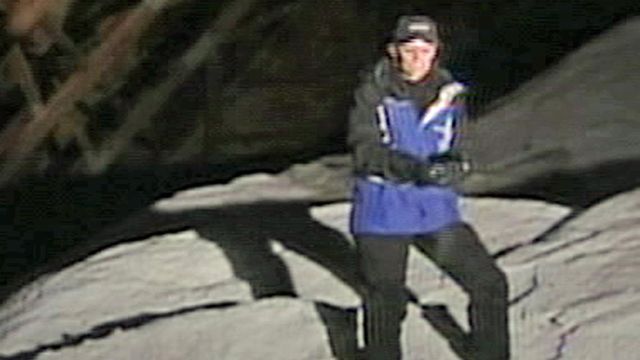Crews prepare to plow snow
The North Carolina Department of Transportation issued a statement Sunday night advising drivers to limit travel as much as possible.
Posted — UpdatedTwo days worth of rain have soaked road surfaces, preventing crews from the standard practice of pre-treatment, Kirsch said. Municipal and state crews usually lay down brine – a mixture of water and salt that prevents ice from bonding to pavement. They couldn't this weekend because the falling rain would simply wash it away.
Instead, Kirsch said, the city plans to salt and plow once snow begins to fall.
Raleigh Mayor Charles Meeker said road crews were standing by for the first sign of snow. They began 12-hour shift rotations Sunday at 6 p.m.
The goal of emergency snow removal, according to the city’s Web site, is to keep major roadways and public transit routes passable for vehicles equipped with all-weather tires, snow tires or chains, or other special equipment designed for icy road conditions.
Raleigh crews prioritize plowing to clear bridges first, followed by major roads and routes used by Capital Area Transit buses.
North Carolina Department of Transportation crews delayed pre-treating highways as well, department spokeswoman Dara Demi said. After snow starts falling, state crews will begin spreading salt on roadways, she said.
The department issued a statement Sunday night advising drivers to limit travel as much as possible.
The Town of Chapel Hill planned to begin applying salt and sand to primary routes, bridges, hills after snow began to fall. Town plows will operate as conditions permit
Tips for driving in winter weather
The North Carolina Highway Patrol offered these tips to help drivers navigate slick roads.
- Clear your vehicle's windows and mirrors.
- Reduce your speed. Driving at the regular speed limit will reduce your ability to control the car if you begin to slide.
- Leave plenty of room between you and other vehicles.
- Bridges and overpasses accumulate ice first. Approach them with extreme caution, and do not apply your brakes while on the bridge.
- If you do begin to slide, take your foot off the gas, and turn the steering wheel in the direction of the slide. Do not apply the brakes as that will cause further loss of control of the car.
- Come to a complete stop or yield the right-of-way at intersections where traffic lights are out. Treat this situation as a four-way stop.
- If you have a cellular phone, take it with you. You can call the Highway Patrol statewide by dialing *HP (*47) or call the local county emergency center by dialing 911.
If you become trapped in your car
- Pull off the highway; stay calm, and remain in your vehicle. At night, turn on the inside dome light, so work and rescue crews can see you.
- Set your directional lights to "flashing," and hang a cloth or distress flag from the radio aerial or window. In a rural or wilderness area, spread a large cloth over the snow to attract attention of rescue crews who might be surveying the area by airplane.
- Do not set out on foot unless you can see a building close by where you know you can take shelter.
- If you run the engine to keep warm, open a window slightly for ventilation. This will protect you from possible carbon-monoxide poisoning. Periodically, clear away snow from the exhaust pipe.
- Exercise to maintain body heat, but avoid overexertion. In extreme cold, use road maps, seat covers and floor mats for insulation. Huddle with passengers, and use your coat as a blanket.
- Never let everyone in the car sleep at once. One person should stay awake to look out for rescue crews.
- Be careful not to use battery power. Balance electrical energy needs – the use of lights, heat and radio – with your supply.
• Credits
Copyright 2024 by Capitol Broadcasting Company. All rights reserved. This material may not be published, broadcast, rewritten or redistributed.






